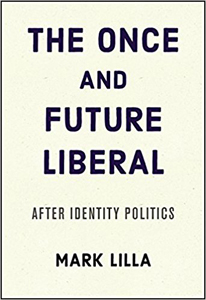 Mark Lilla, The Once and Future Liberal; After Identity Politics (New York: Harper, 2017), 141pp.
Mark Lilla, The Once and Future Liberal; After Identity Politics (New York: Harper, 2017), 141pp.
The time of Trump has provoked serious soul searching among both Republicans and Democrats. On the right, David Frum, a speechwriter for President George W. Bush, recently published his book Trumpocracy: The Corruption of the American Republic (2018). In his new manifesto about the liberal left, Mark Lilla, Professor of the Humanities at Columbia University and a self-identified "centrist liberal," bemoans the failures of Democrats. And he does so by an incendiary critique of the left's most sacred cow — identity politics.
If you go to the home page of the Democratic Party, and scroll down to the bottom of the page, you'll find a link for "People." Click on that link and you will find seventeen (!) distinct groups — women, LGBT, Hispanics, and so on. Instead of casting a vision for what unites our entire country, instead of gathering us together in what we all share in common, the left has become obsessed with divisive, narrow, exclusionary, and hyper-individualist identities. Instead of building consensus and pulling us all together, says Lilla, identity politics does the opposite, it fractures and fragments us into our self-interested groups.
This strategy guarantees failure, says Lilla. The focus on identity movements distracts progressives from the more important task of politics and doing the more mundane business of actually winning elections. Over and over Lilla repeats the word "common" — our common good, our common future, our common destiny, our common goals, what we all share and can all affirm not as radically different interest groups but as common citizens. The focus on identity groups is what Lilla calls a "disuniting rhetoric of difference." It exerts a centrifugal force that splinters the common good. In short, liberals have "mastered the art of self-sabotage."
For about two generations now, says Lilla, the most important lesson for us to learn is the failure of both the left and the right to define a common vision for all citizens. In the last pages of his book he suggests four themes for a way forward: the priority of institutional over movement politics, the priority of democratic persuasion over aimless self-expression, the priority of citizenship over group or personal identity, and the increased need for civic education in an increasingly individualistic and atomized nation (104).
For a spirited discussion of Lilla's critique of identity politics, see David Remnick's interview in the New Yorker (August 25, 2017).


